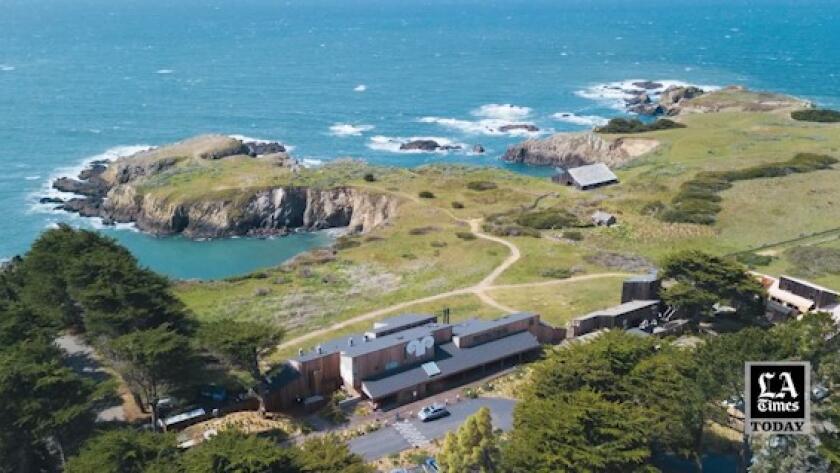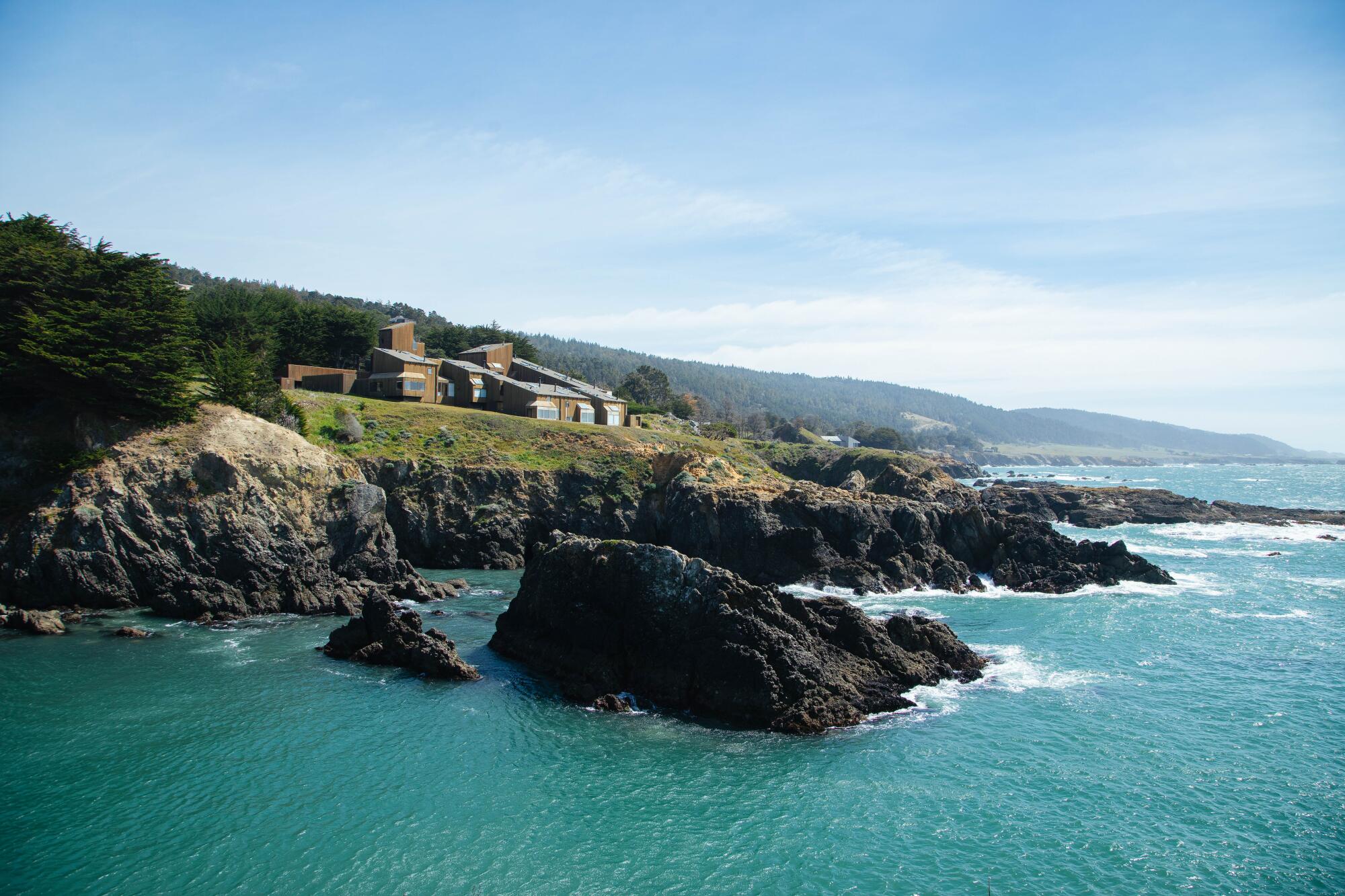
- Share via
In L.A., especially among my friends in the design community, any talk about travel often turns to the Sea Ranch. Ted Vadakan and Angie Myung, the husband-and-wife team behind the lifestyle brand Poketo, remember the day they learned about it. “Angie googled ‘the most beautiful beaches in California’ and the Sonoma-Mendocino coast came up,” Vadakan said. Soon, the couple was driving more than 500 miles north to discover a tiny oasis where waves crash along sandstone cliffs, Modernist houses meld into the landscape of redwood forests and every snapshot looks like something out of a utopian storybook. Awestruck, Vadakan and Myung decided to purchase a home there. They now return as often as they can.
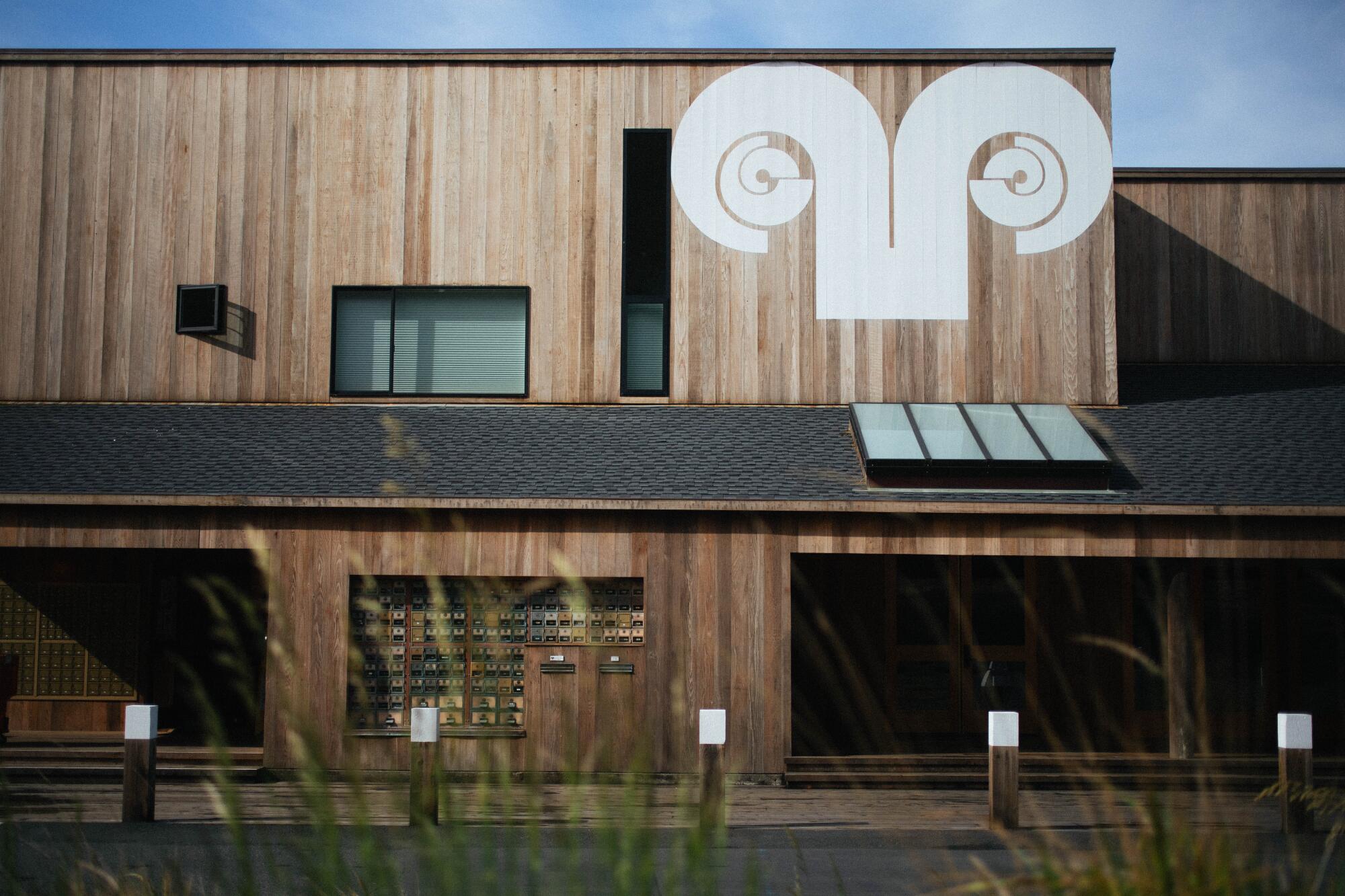
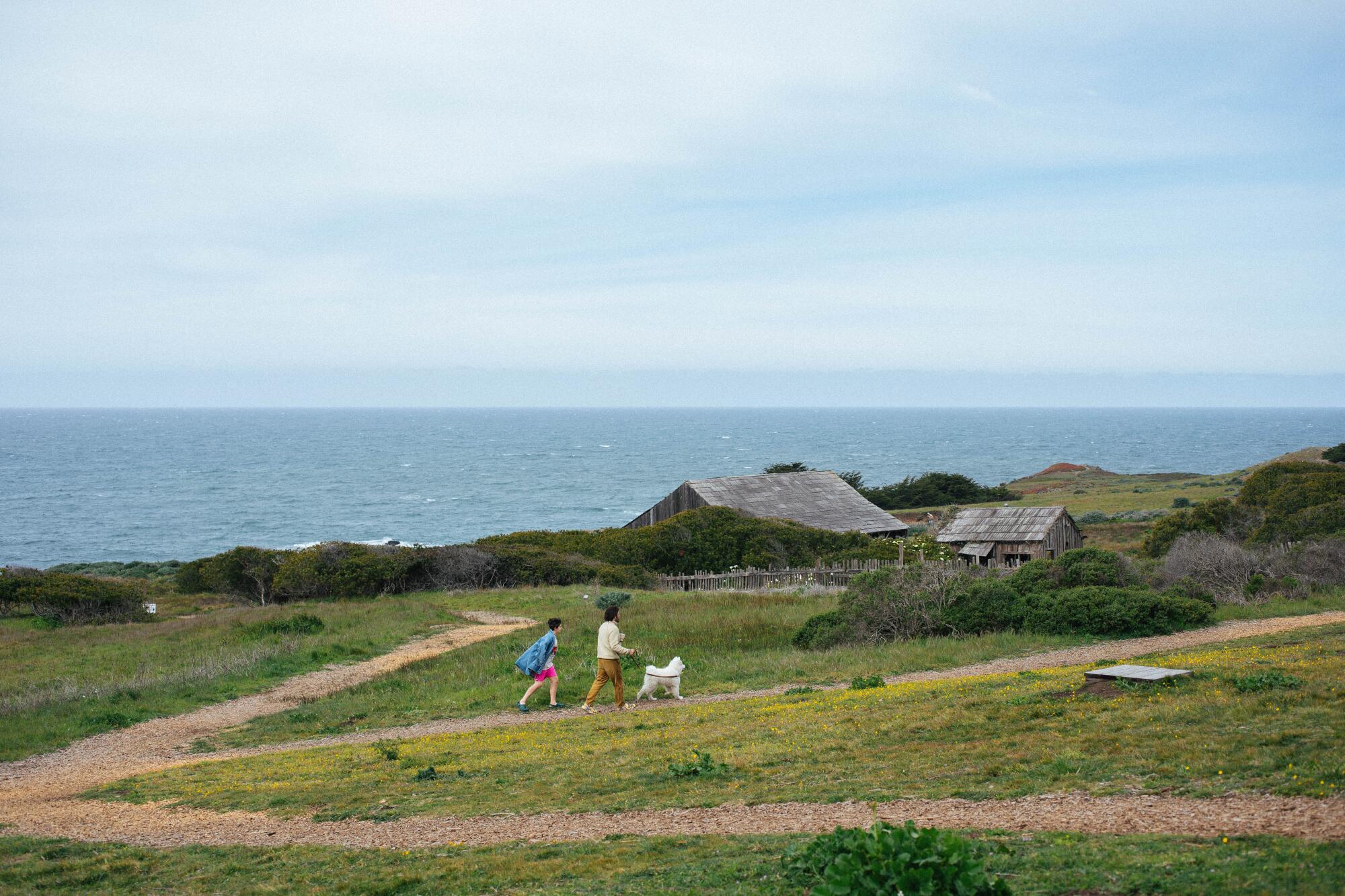
“The stress of the drive just fades away when you open the car door, hear the ocean and settle by the fire,” Vadakan said. “The Sea Ranch is a truly special place, so different from Los Angeles — the nature, the small-town vibe, the unique architecture. Put it this way: When it comes time to get back to reality, we leave a bit of our heart there.”
It’s fun watching fellow Angelenos fall in love with Sea Ranch, a place where my parents have had a home since 1988. If you haven’t yet experienced it, you might wonder why anyone would spend a whole day driving north, past Malibu, Ventura, Santa Barbara, Cambria, Big Sur and Carmel, past the Bay Area and out to Highway 1 to reach a private, unincorporated community along a 10-mile stretch of coastline.
The answer is, there’s no other place like it.
Over the years, I’ve driven to Sea Ranch many times with friends and eventually with my daughters. During these dreamy getaways, we’ll walk the bluffs over the Pacific Ocean, explore the tide pools, listen to the harbor seals bark from the water’s edge, take photos by a rock formation my girls named the Camel, kayak on the Gualala River and explore the small towns in the area. We’ll drive up into Mendocino County to go horseback riding at Ross Ranch, steering the horses though the pasture, down the cliffs and onto Manchester Beach. Back at the house, we’ll cook local fish and stay up late doing 1,000-piece puzzles as the moon glows on the waves. It often feels otherworldly.
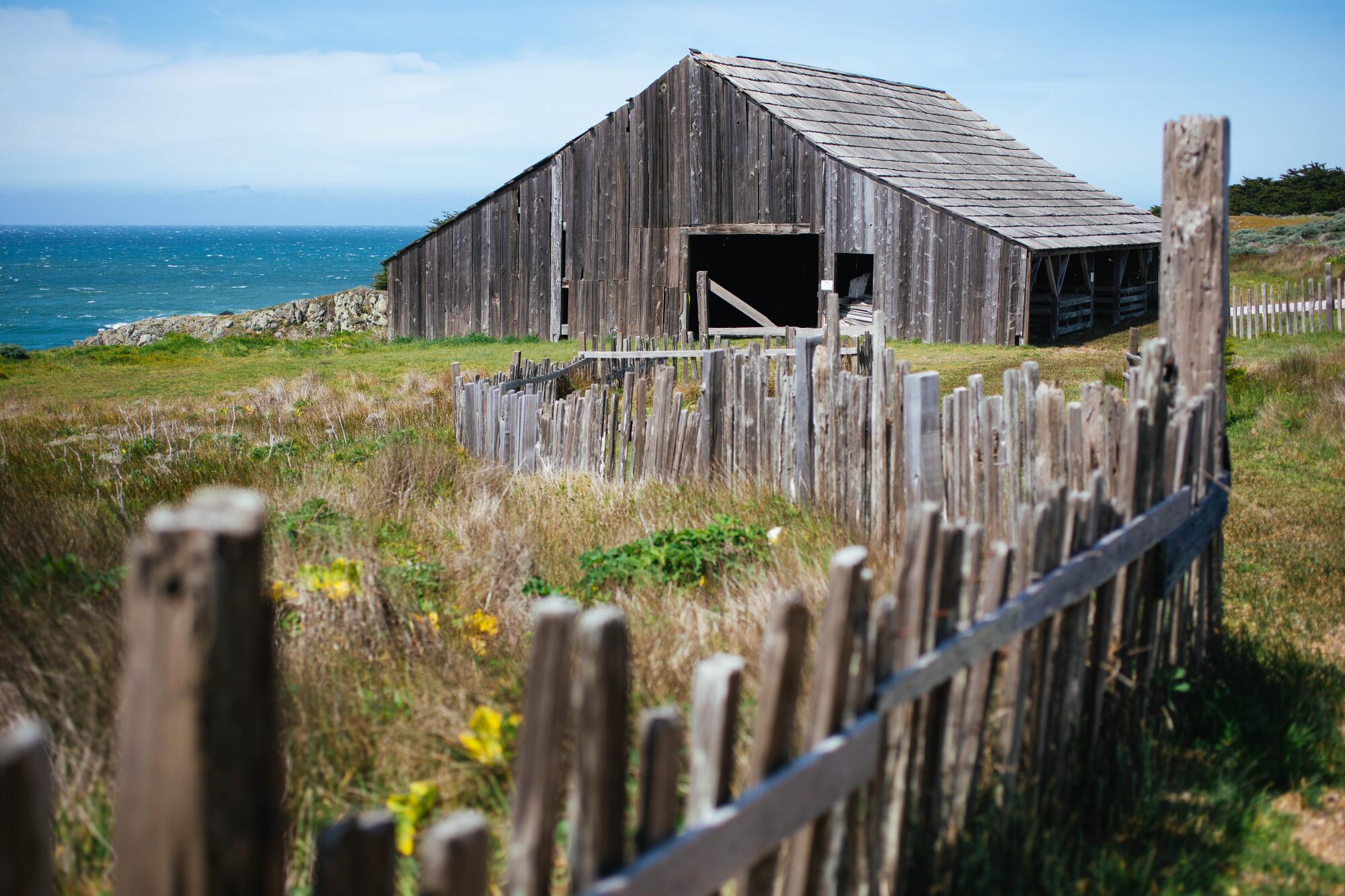
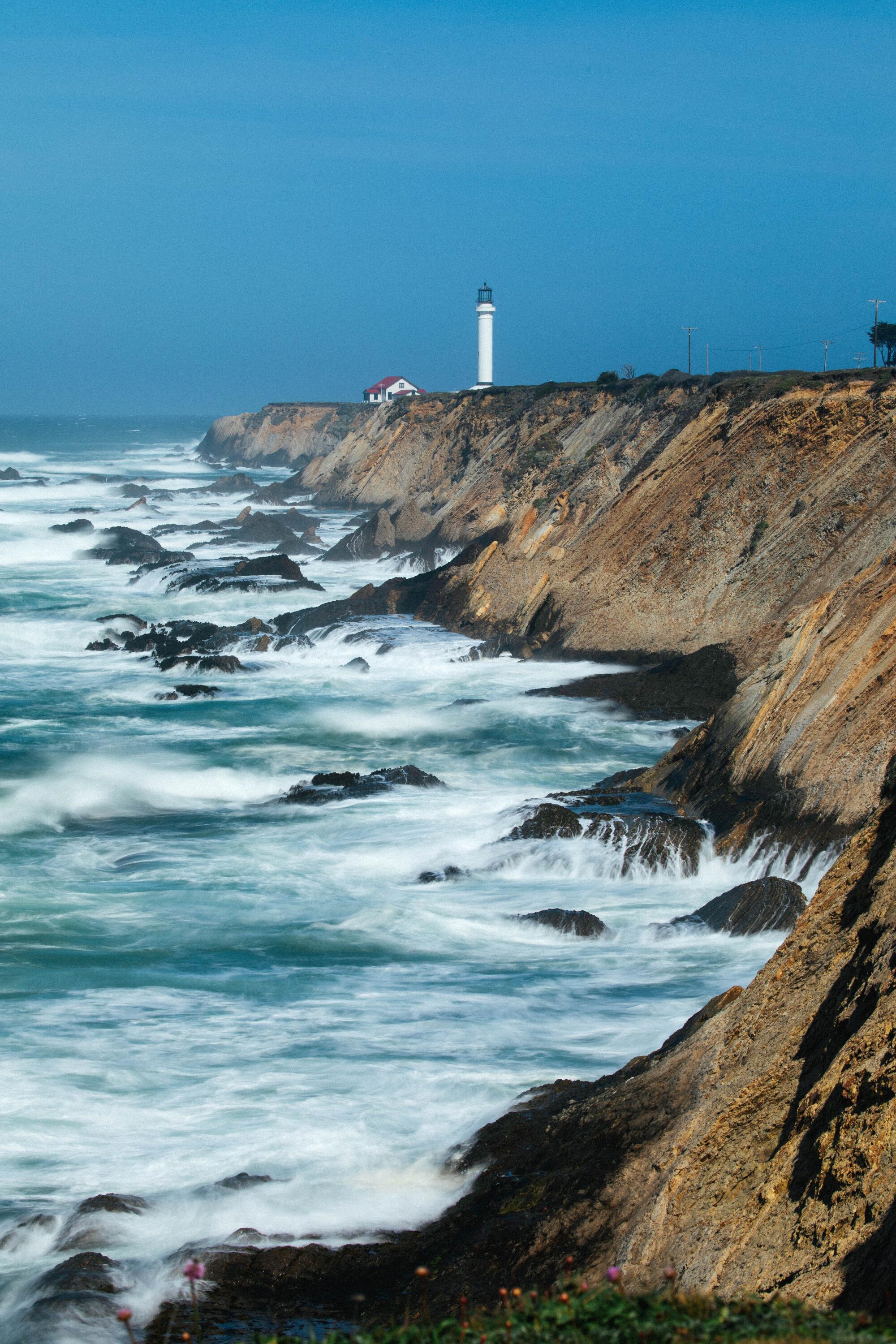
The Sea Ranch was founded in the 1960s by architect Al Boeke and landscape architect Lawrence Halprin who, with a like-minded group of people, wanted to develop a community of homes that harmonized with the environment. “No palm trees, no flower beds, no prettiness,” Halprin wrote in the 2004 book “The Sea Ranch,” reflecting on the original vision for the community. Suburbia-style lawns “would be outlawed,” he insisted, opting instead for native plants. And houses would be clustered together in a village — not sitting alone in separate, 10-acre lots — so that at least half of the land would be open for nature. Halprin also was adamant that there be no “Malibu wall,” referring to the massive homes that line the Malibu cliffside. Following those plans, Charles Willard Moore, Donlyn Lyndon, William Turnbull and Richard Whitaker of the famed architecture firm MLTW built the the Sea Ranch Lodge and surrounding buildings, establishing design parameters and aesthetic ideas for the planned development of primarily timber-framed structures.

Subscribers get exclusive access to this story
We’re offering L.A. Times subscribers special access to our best journalism. Thank you for your support.
Explore more Subscriber Exclusive content.
Eventually, the area evolved into a real estate development that continues to uphold utopian values that protect the beauty of the coastline. A motto of “living lightly on the land” — inspired by the Pomo Indians, early visitors of Sea Ranch — is one that community members hold tightly today. The Modernist haven was the subject of a 2018 San Francisco Museum of Modern Art exhibit, which featured a full reproduction of the historic Condominium #9 built in the gallery.
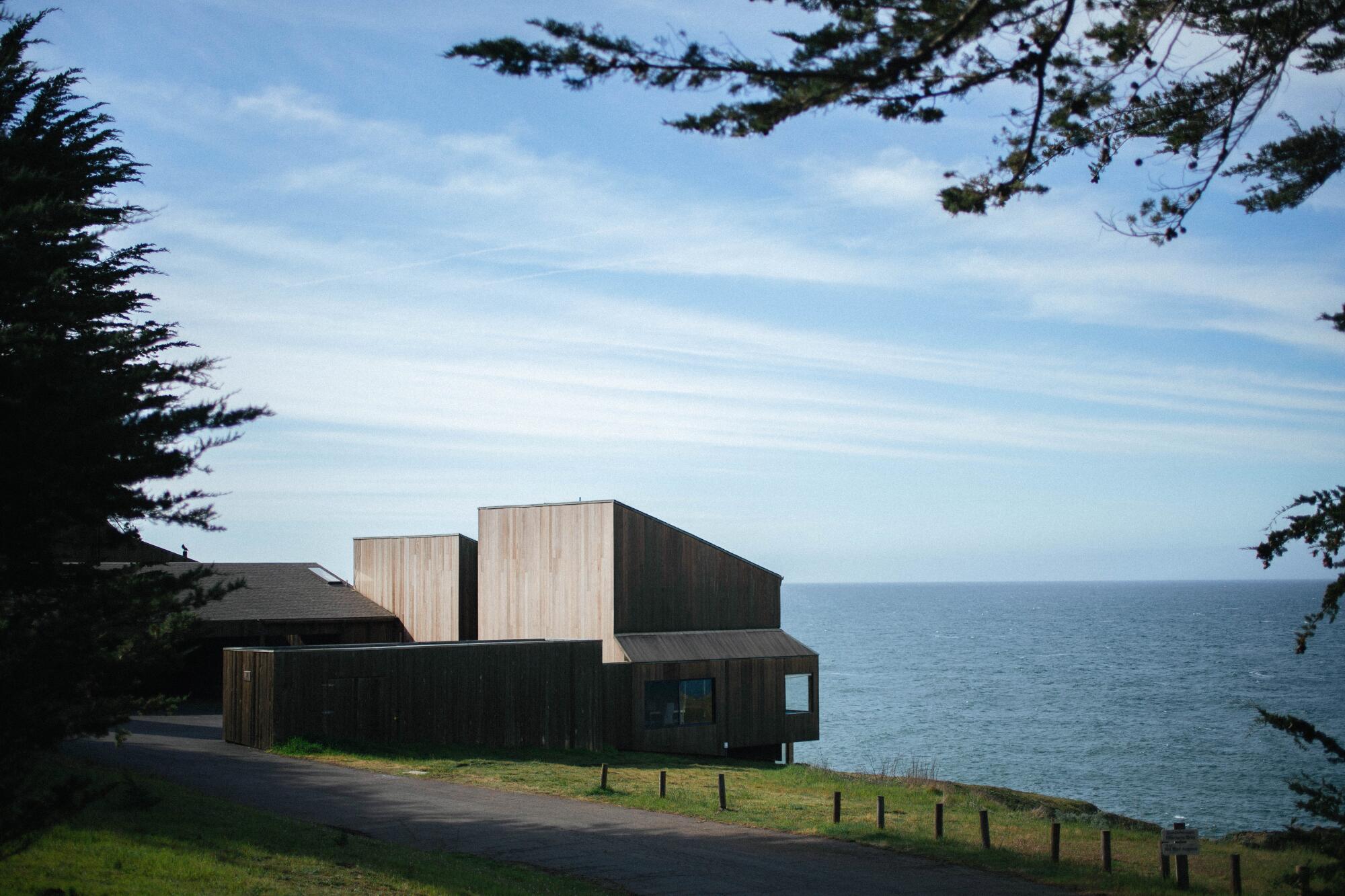
For some, the Sea Ranch is an idealized architecture park. For others, a marvel of sustainable living with an ecological ethos. For me, it’s a sanctuary. A place, where after months of living in the fast-paced pulse of my beloved Los Angeles, I can take in deep breaths of fresh ocean breezes and soak in the beauty of a rural paradise. All I have to do is drive north.
Where to stay
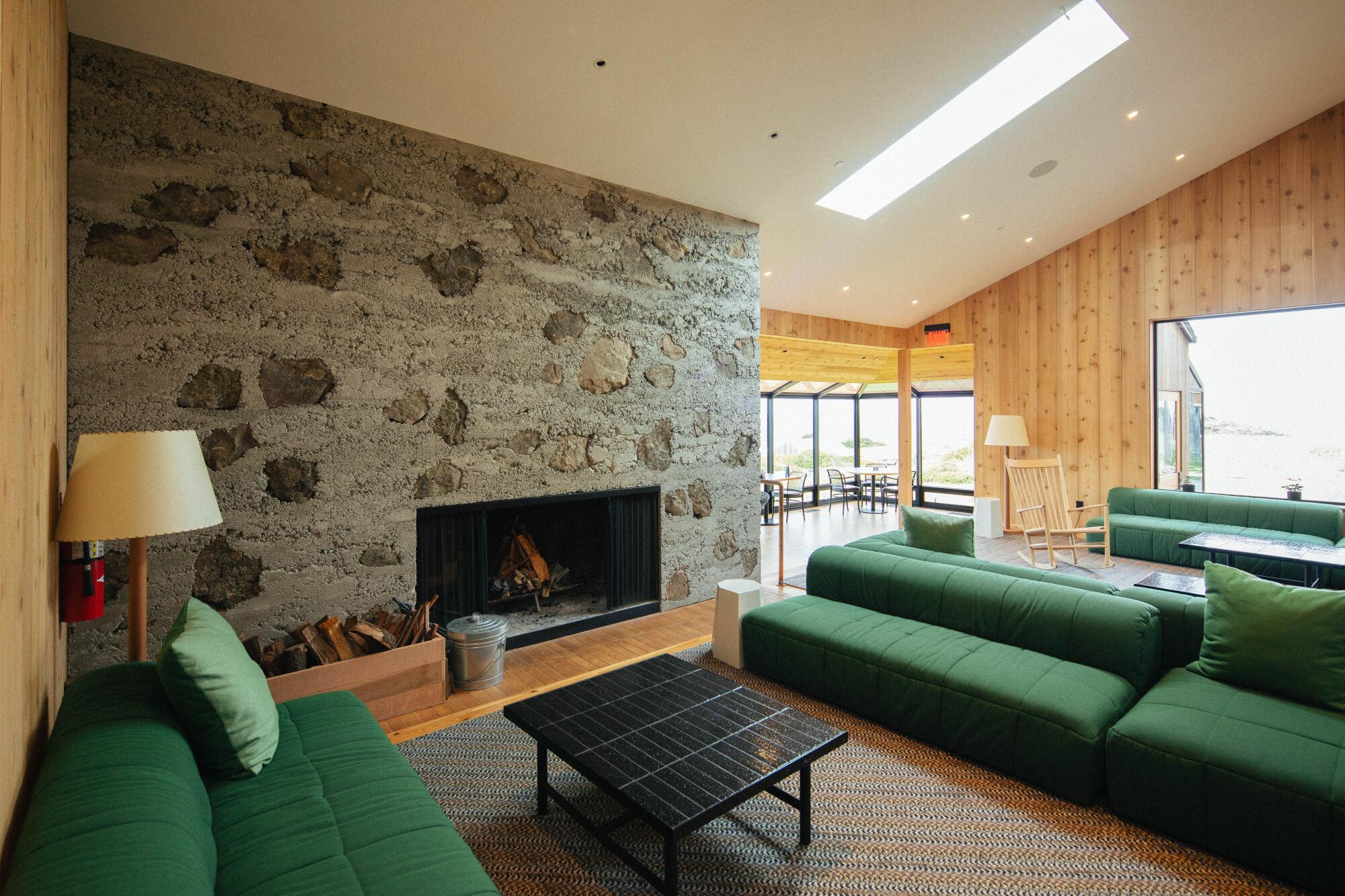
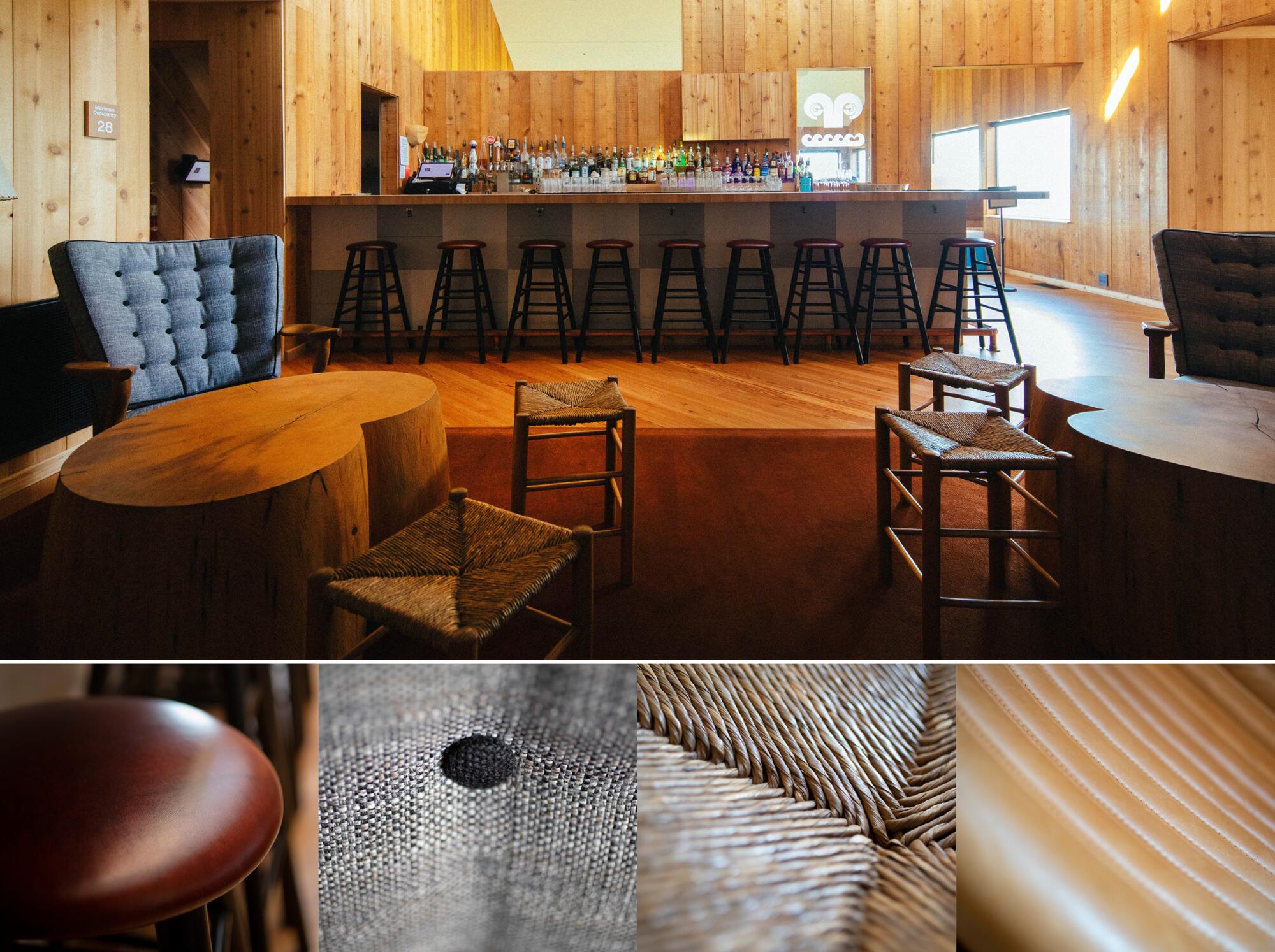
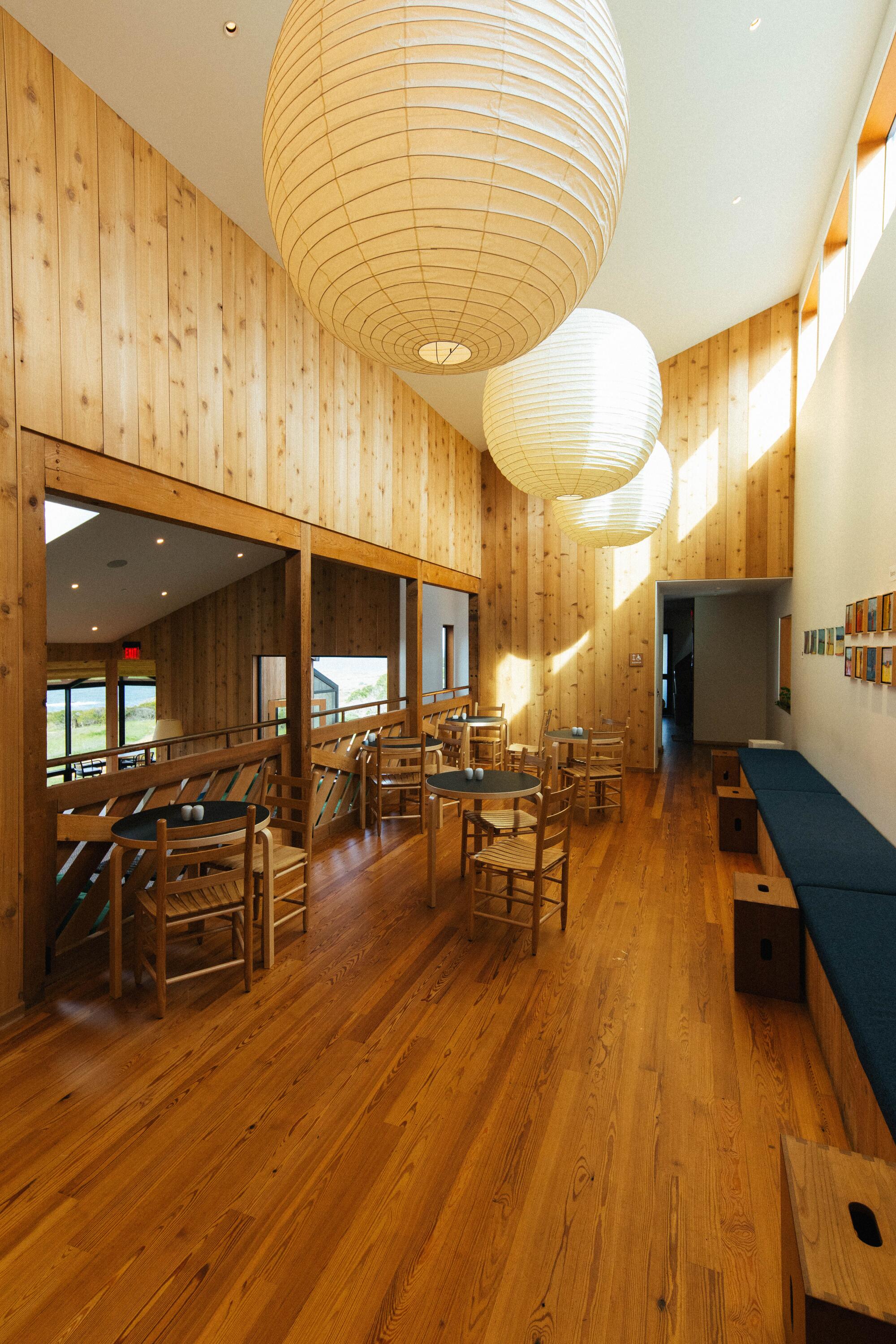
For visitors who want to experience life at the Sea Ranch, the best thing to do is to rent a home, bask in nature and live like the locals do. Rentals, which start at around $275 a night with a two- or three-night minimum, come with access to private roads, parking and all of the coastal and hillside hiking trails.
Renters receive passes to the recreation centers, which are all worth a visit. The Del Mar Recreation Center, with a pool and tennis courts, was built in the style of a ranch settlement. The Ohlson Recreation Center pool features a majestic redwood structure with massive barn doors between the pool and tennis court and a native plant garden. The pool and tennis court at the Moonraker Recreation Center is the site of graphic designer Barbara Stauffacher Solomon’s large-scale supergraphics — her Swiss-influenced minimalist shapes and lettering, which were highly influential in the 1960s and ‘70s, are layered on the rustic building.
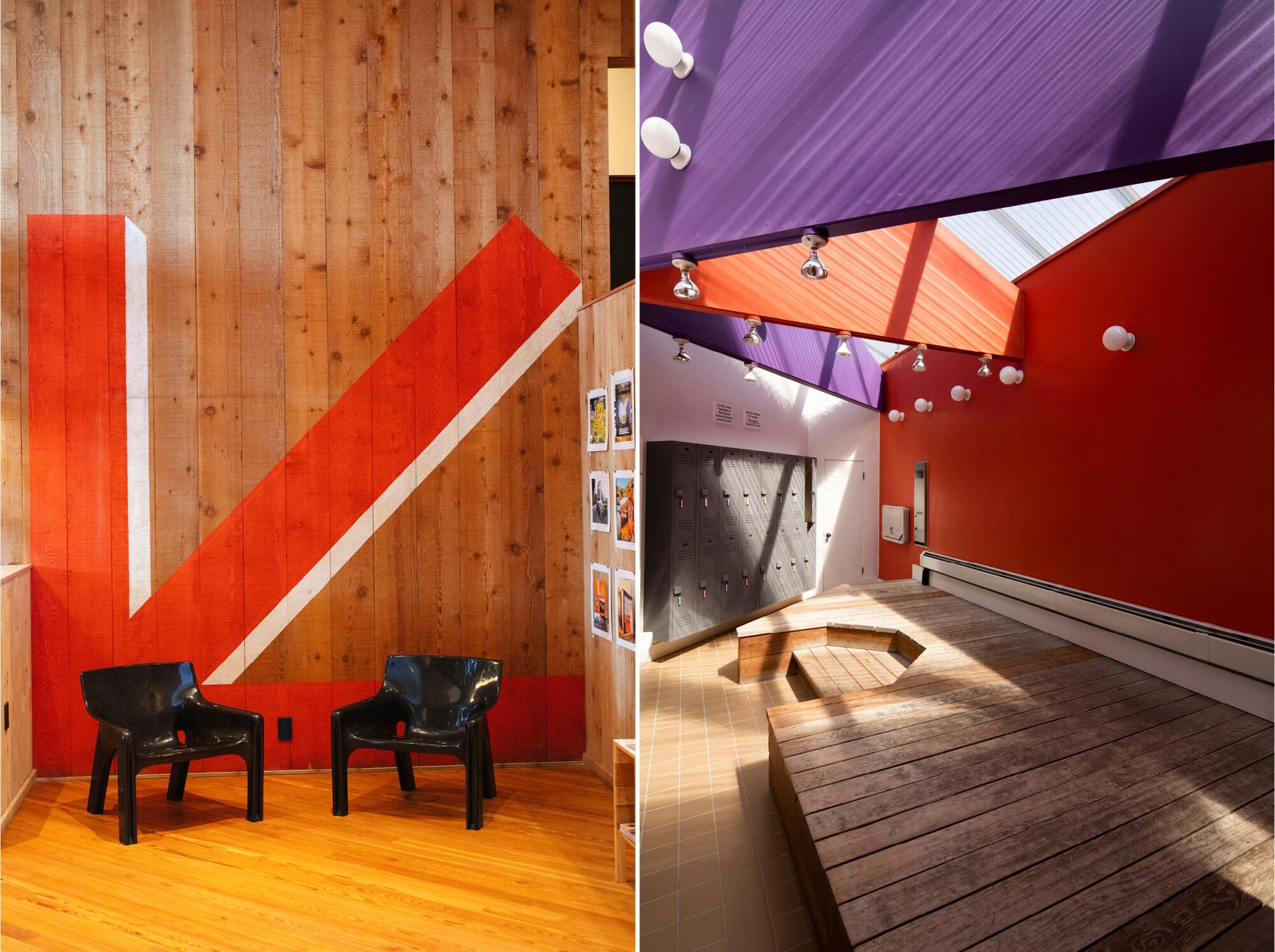
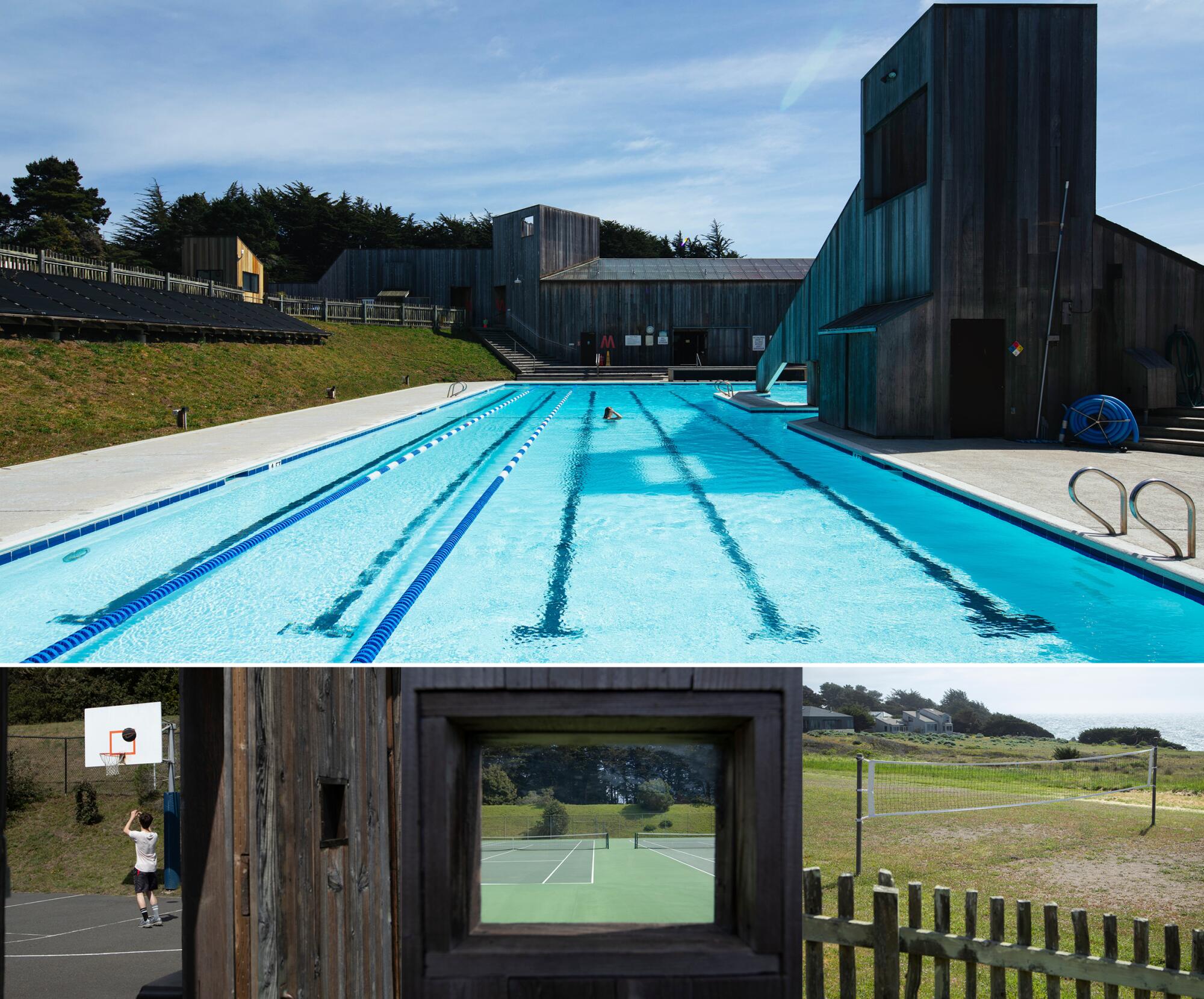
Recently, the Sea Ranch Lodge has undergone a renovation. The café and general store are now open for locals and visitors, and by next year, the 17 guestrooms will reopen. As for homes, several rental companies have vacation rentals. Designed by the famed architect Joseph Esherick and surrounded by a redwood grove, the minimalist Esherick MiniMod home can be rented through Vacasa. Vadakan and Myung rent out the hillside home they named Sweet Sea Ranch through Airbnb. The Sea Ranch Escape has Condominium #9, the original residence of architect Charles Moore, available as a rental property.
What to eat
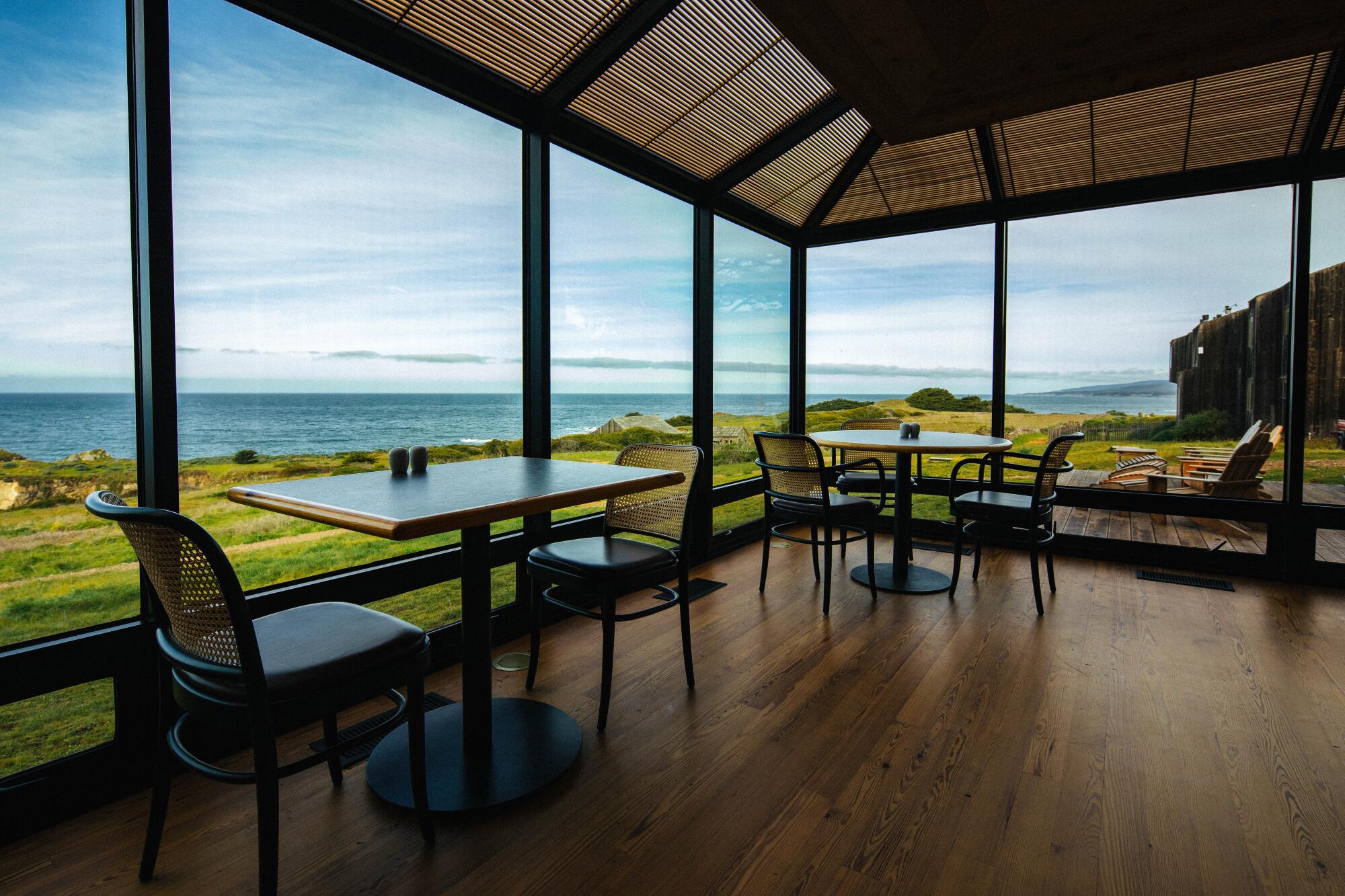
Mithun headed up the architectural renovation of the Sea Ranch Lodge with interior design by the Office of Charles de Lisle. They carefully guided their mission to bring the Lodge back closer to its original design from 1964 and furnish the light-filled space with organic casual décor. The lodge now has a new shop, community space and coffee bar serving local roaster Plank Coffee. The restaurant serves meals all day with sweeping views of the coastline and dreamy sherbet-hued sunsets. Chef Eric Piacentine created a menu of refined dishes evoking the flavors and textures of the rugged natural landscape.
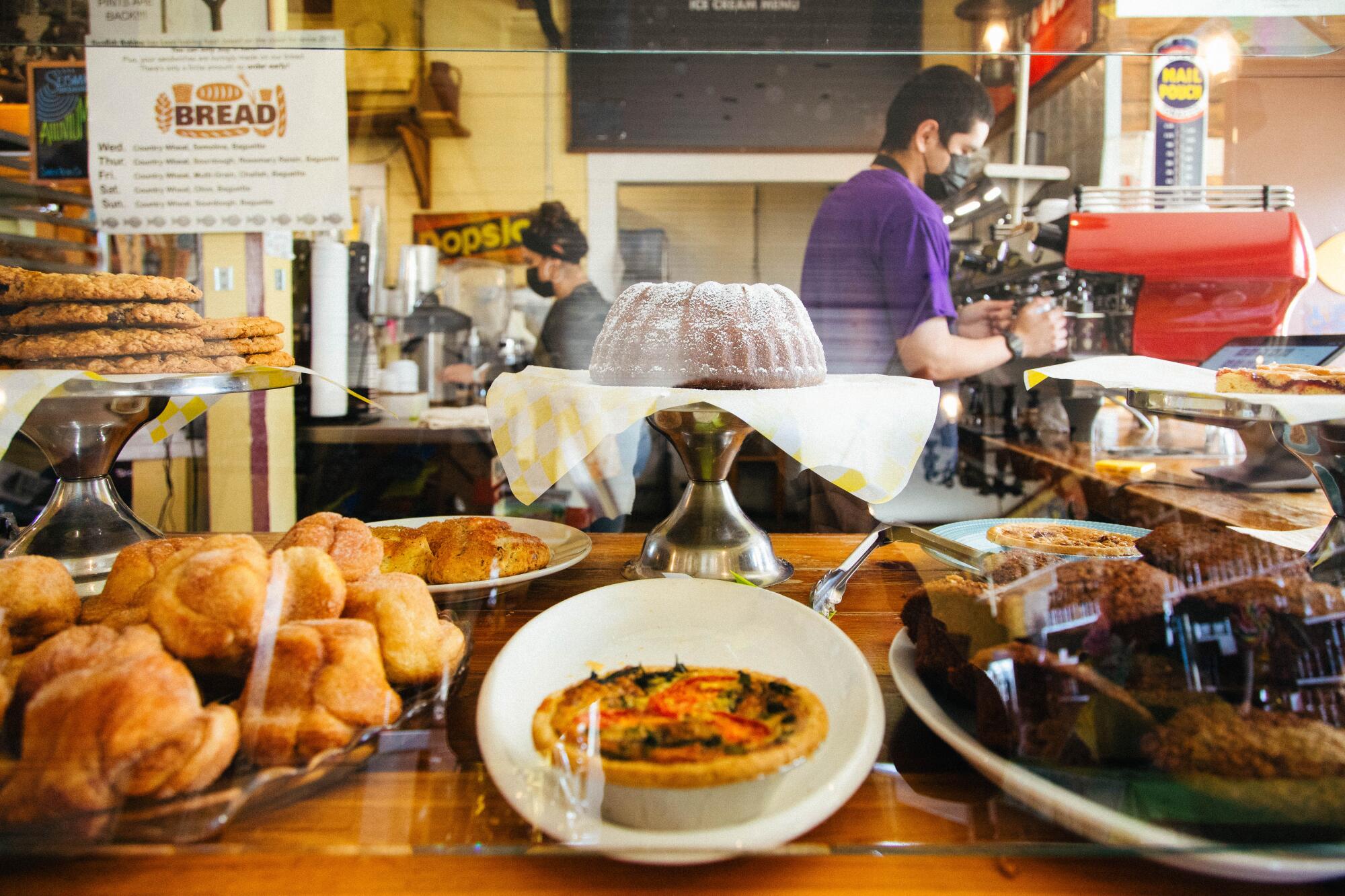
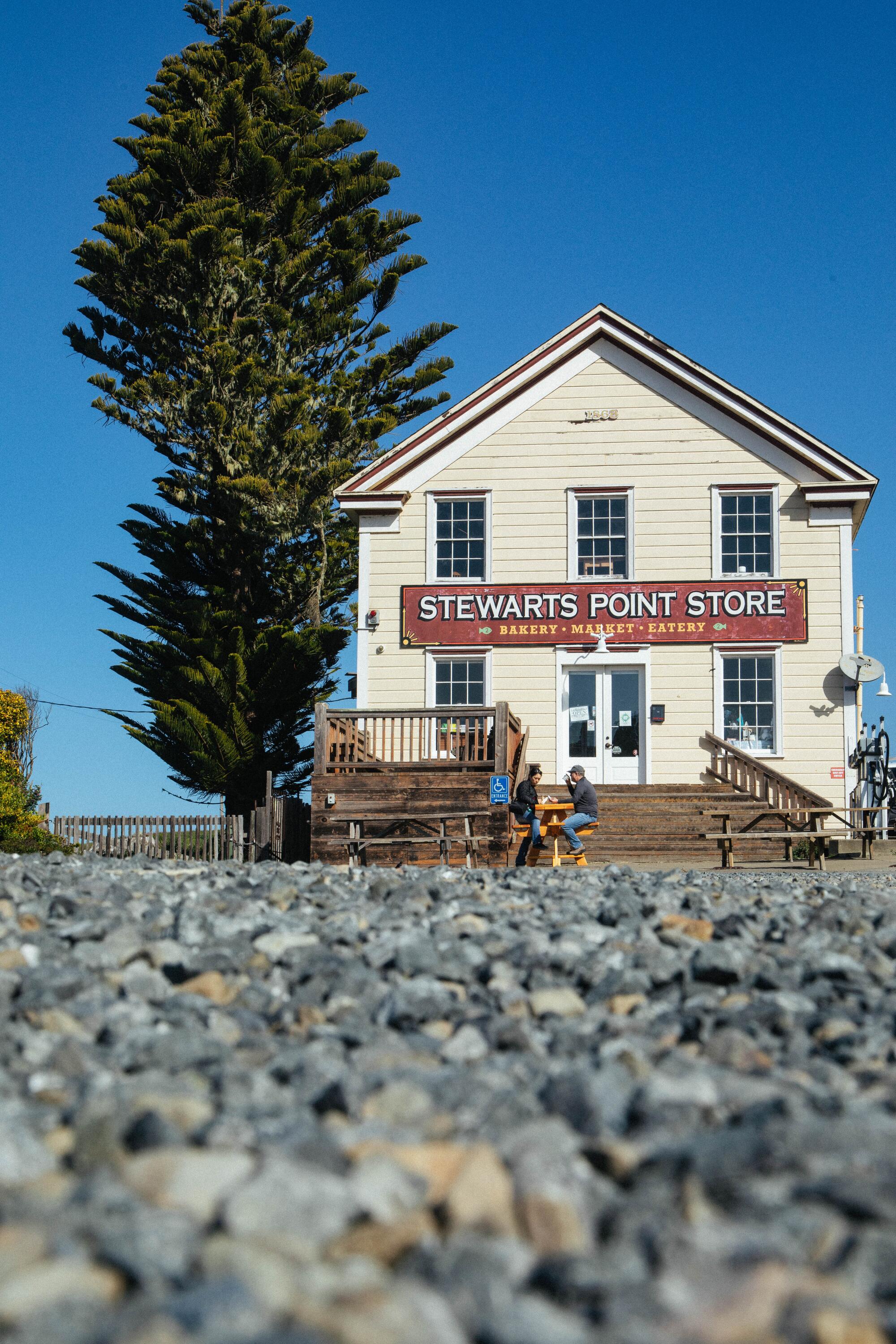
Nearby in Stewarts Point, Margaret Smith and Hilla Ahvenainen’s Twofish Baking is known for its rotating daily menu of fresh breads, pastries and egg and cheese-filled biscuits. Sandwich offerings include the Veg Max, which features fresh cheese, veggies, pepperoncini, pickles and olives piled on a house-made roll. Just past Sea Ranch in the town of Gualala at the Mendocino County border, the Surf Market offers local artisanal foods and sets up a barbecue in the parking lot on the weekends. The Gualala Seafood Shack serves Louie salads, prawn sandwiches and New England-style chowder. Drive further north to order red curry with duck or tofu at Anchor Bay Thai and then onto Point Arena for savory pastries and a slice of princess cake at Franny’s Cup and Saucer Bakery. New to Point Arena, Izakaya Gama opened in April with a menu of seasonal pickles, kushiyaki and temari sushi.
Explore nature
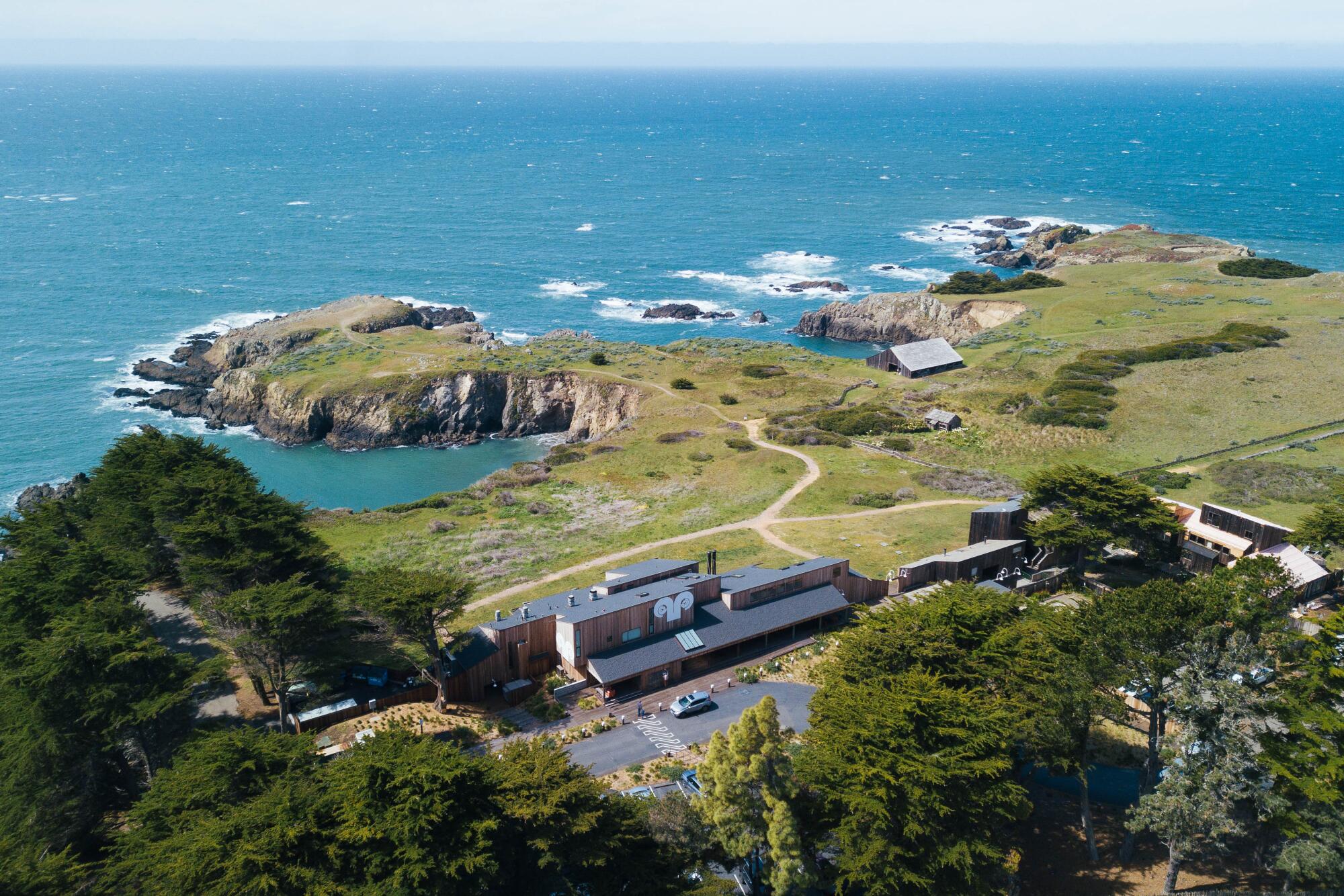
Walking and hiking the many coastal and hillside trails feels like a celebration. Vadakan and Myung recommend the picturesque Salal Trail that begins near the Golf Links Pro Shop and leads to the coast with redwoods, moss-covered rocks, overgrown vines and surprise waterfalls along the way. Golfers will want to try this scenic course with nine of the holes designed in the Scottish “links” style.
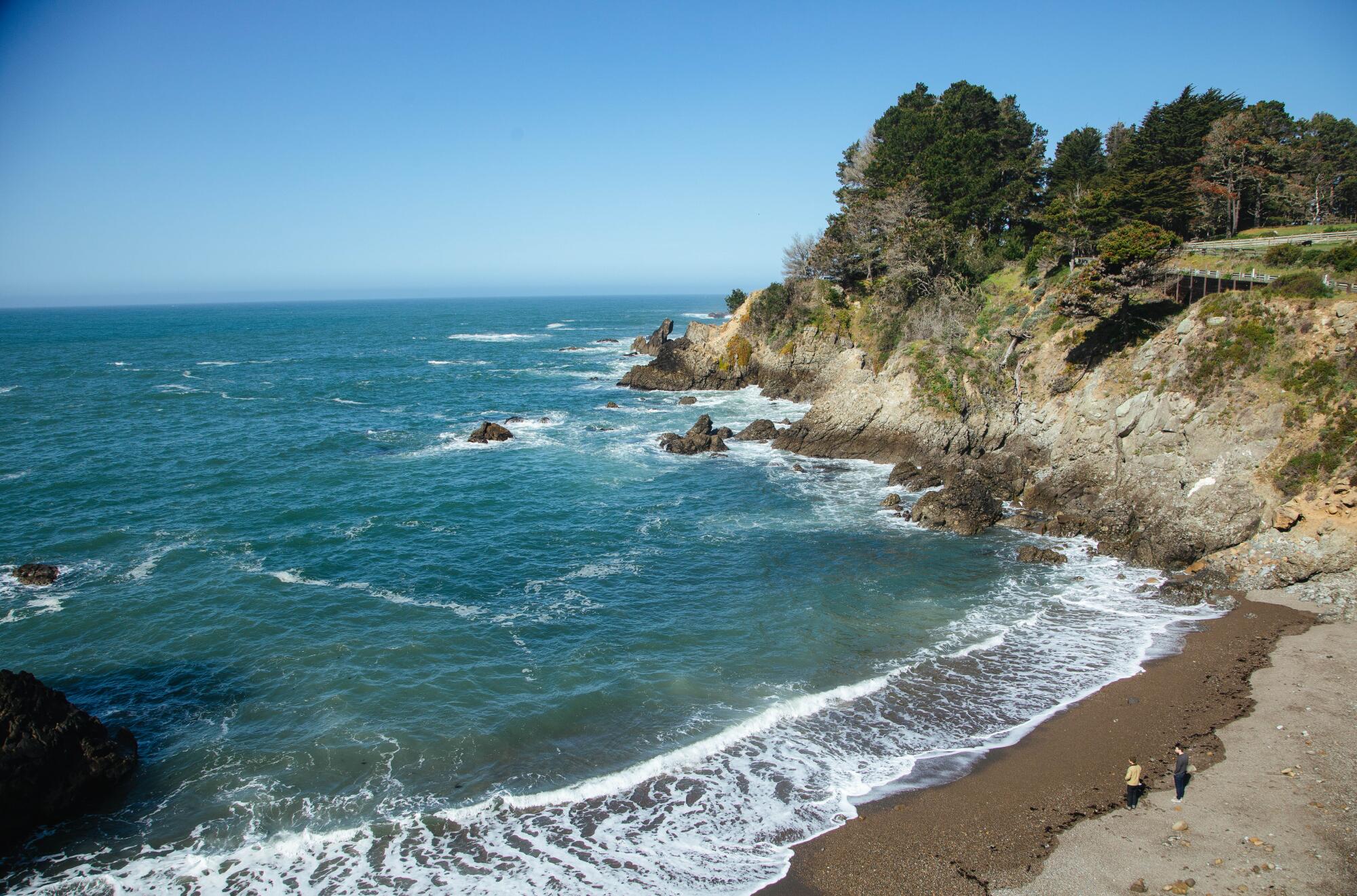
For an amusing activity, check the Sea Ranch Sheep’s “Find the Sheep” map to find the location where you can watch the woolly herd grazing to reduce fire hazards in the cutest way possible. During the spring, tiny lambs follow their mothers for the munching expedition.
Though most of the beaches have rocky formations and strong currents, each has elements that are fun to explore. Descend down staircases to Walk-on Beach for sweeping views, Black Point Beach for dramatic black sand and Pebble Beach for colorful tidepools. Harbor seals can be spotted along several spots on the coast with many congregating at Shell Beach.
To get even more of an insider’s view, book an experience with Unbeaten Path Tours, where guide Margaret Lindgren leads architecture and nature walks, yoga classes and healing experiences in the area. Or head north, just over the bridge into Mendocino County, to rent kayaks from Adventure Rents along the banks of the Gualala River. Nearby, the Redwood Coast Land Conservancy will soon be adding trails though Mill Bend, an estuary and lagoon that’s a habitat for endangered and threatened species such as steelhead, Coho salmon and red-legged frogs.
Get spiritual
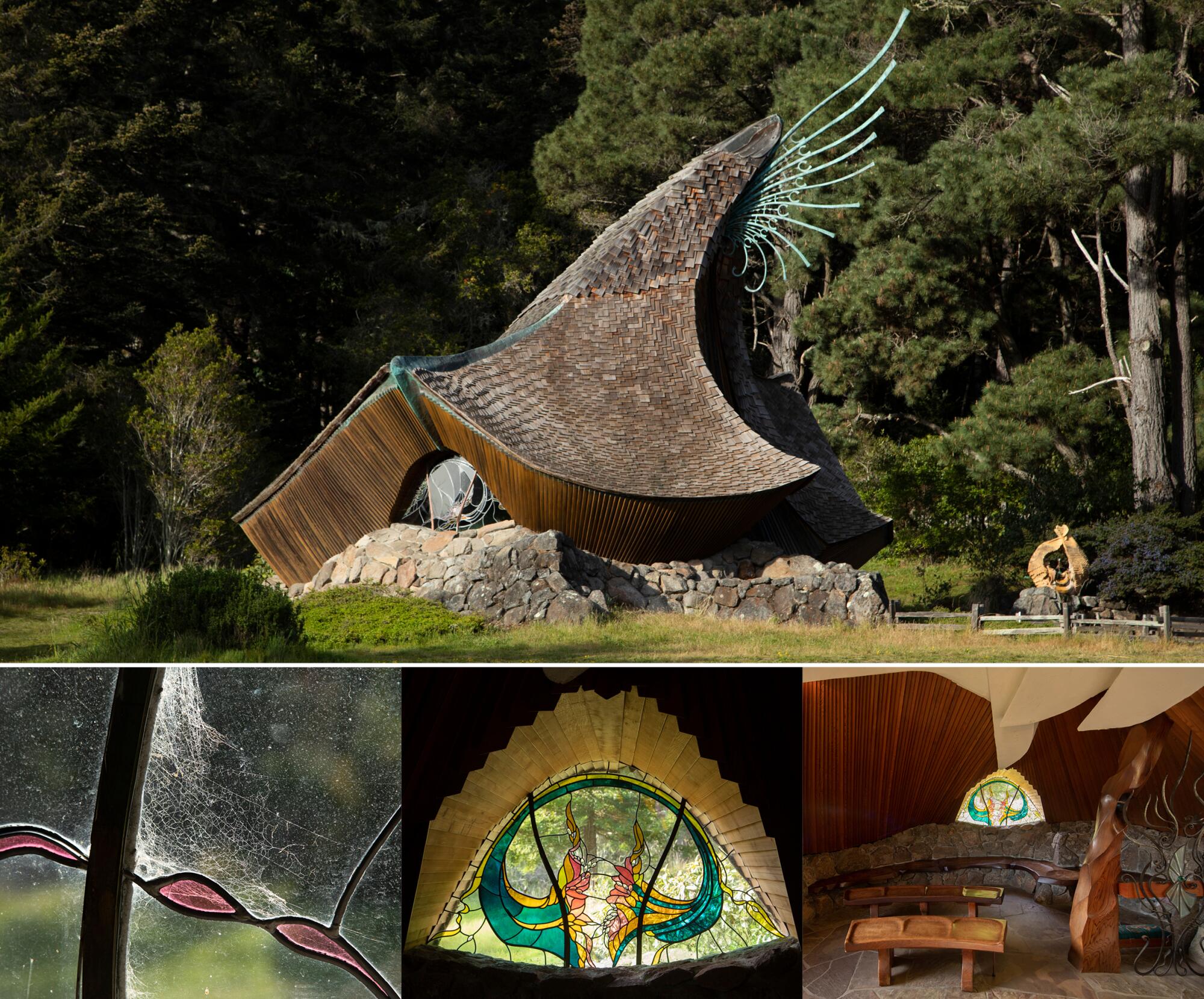
Visible from Highway 1, the Sea Ranch Chapel looks like a swirl of wood in the shape of a candle flame. To get there, visitors drive through a meadow of native plants that winds around in a wide curve, which was designed to give them a chance to clear their minds before experiencing the space.
Jewel-toned stained-glass doors sit at the front of the nondenominational chapel, designed by James Hubbell. Pull the hand-forged handle to reveal an interior with redwood seating and shelves carved by sculptor Bruce Johnson and metalwork by local blacksmith Frank Hagist. Seashells are embedded in the plaster of the flower-shaped ceiling. This tiny sanctuary, which draws people from around the world, feels like stepping inside the pages of a storybook.
Explore this haven for artists and architects
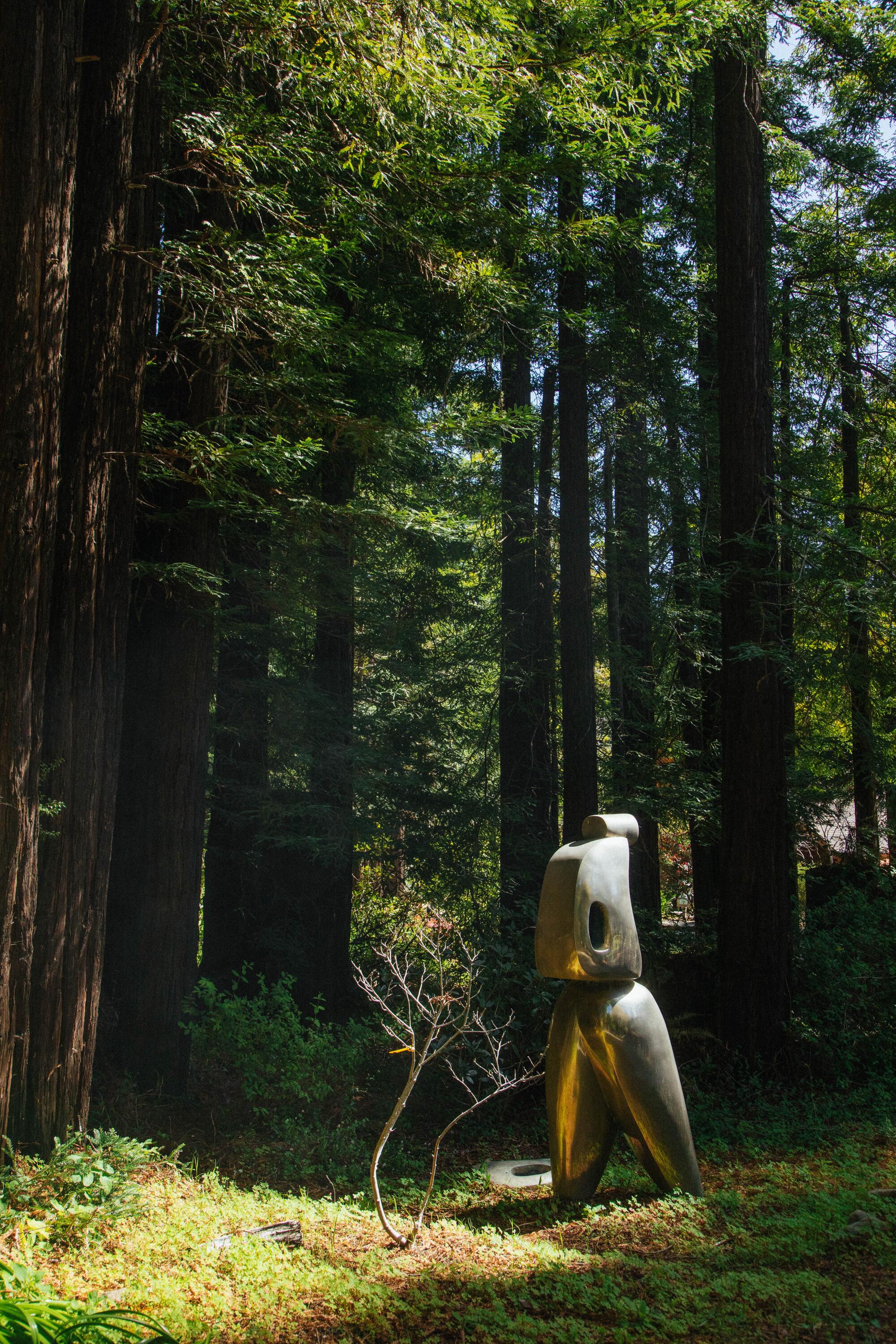
The entire community has become a kind of architecture park with hedgerows strategically planted to help block the strong winds along the coast. Every walk in the area reveals the artfully designed homes by MLTW, Obie Bowman and other renowned architects, including Lisa Scott and Fiona O’Neill. To learn more about the buildings and landscape markers along the trails, pick up a copy of Donlyn Lyndon’s book “Places at The Sea Ranch” at the Sea Ranch Lodge shop.
Near the lodge up Annapolis Road, longtime residents Maynard and Lu Lyndon opened their newest concept, LyndonDesign Gallery, which they fondly refer to as Big Tiny Gallery, in 2020. Maynard Lyndon (brother of MLTW architect Donlyn Lyndon and son of architect Maynard Lyndon, who designed waffle-like Bunche Hall at UCLA) lives in a home designed by his brother and is a photographer and furniture designer. At their gallery they exhibit mostly local artists, including Joe Ferriso, whose recent series of paintings is based on the shapes of Sea Ranch houses. They also curate a gallery wall and art installations at the Sea Ranch Lodge.
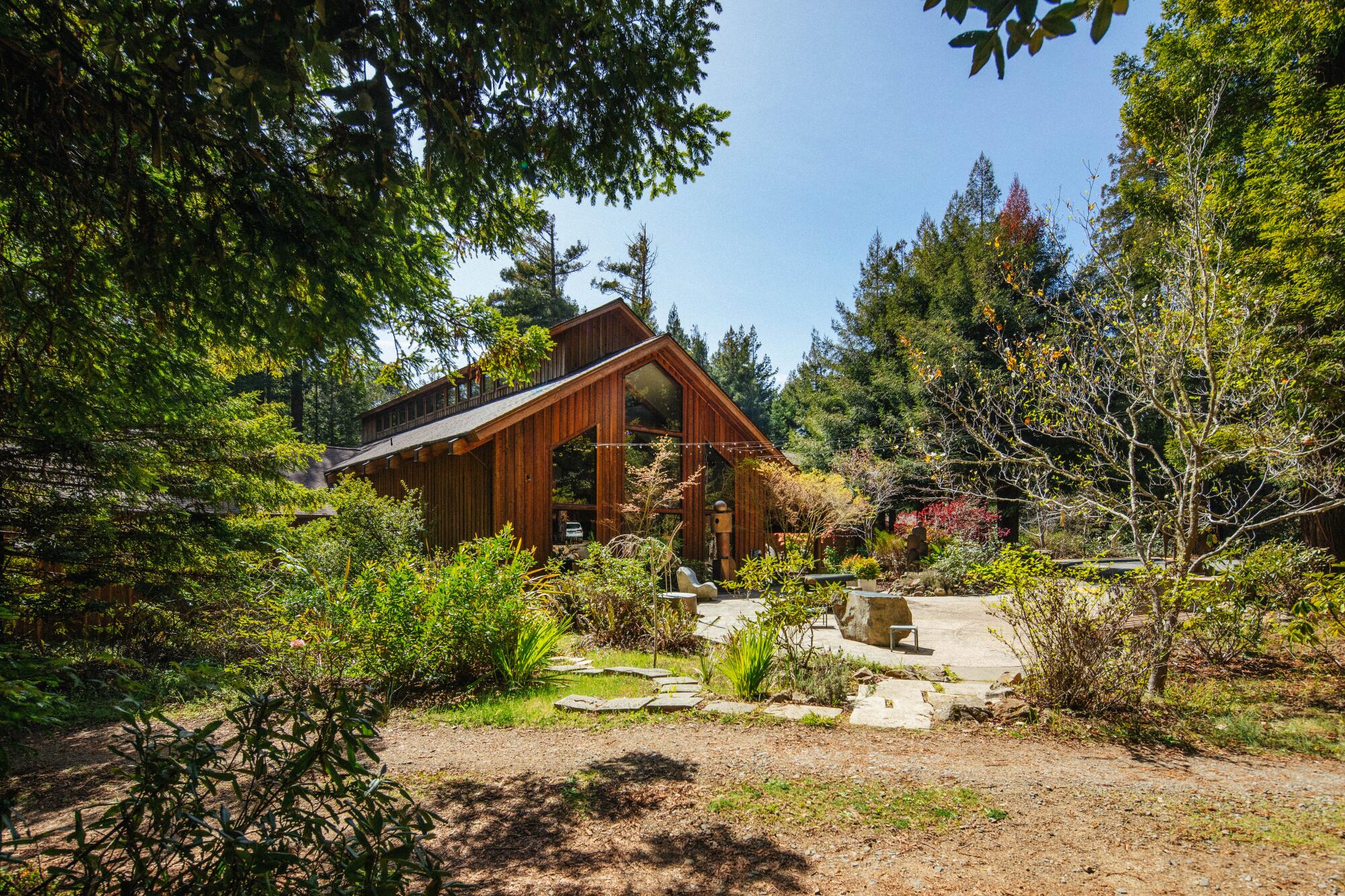
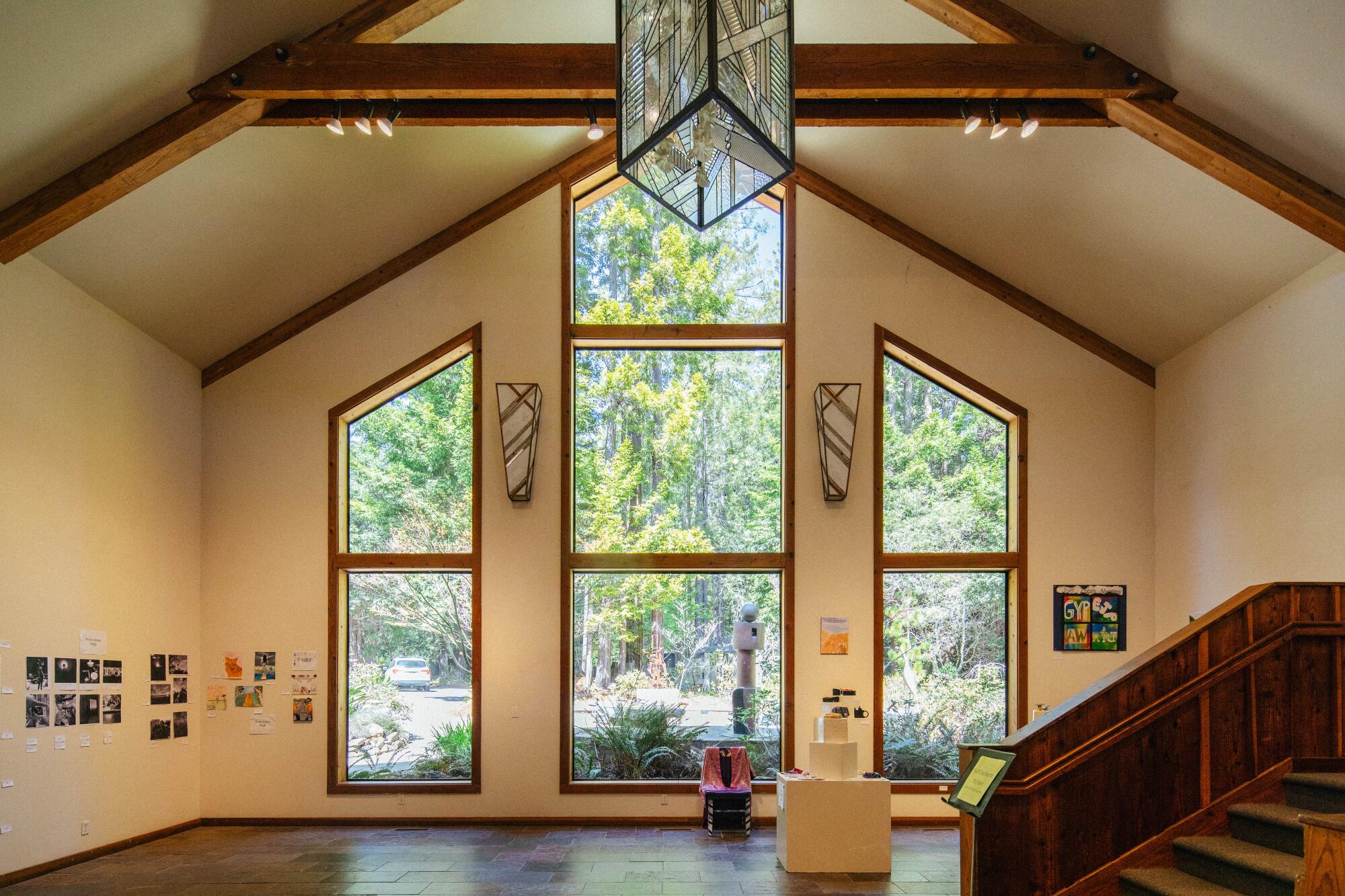
The vibrant Sea Ranch arts community plans events and architecture tours celebrating the creative spirit of the area. Nestled in the forest just north of Sea Ranch, the visual and performing arts organization Gualala Arts Center hosts exhibits and community happenings all year. Its sculpture garden leads to an outdoor theater and miles of trails on 11 acres. In partnership with the Sea Ranch Assn. and the Lodge, the Arts Center recently launched The Sea Ranch Artist Residency, naming Catherine Opie, a Los Angeles-based artist and chair of the UCLA Department of Art, as the inaugural recipient.
Up and down the coast
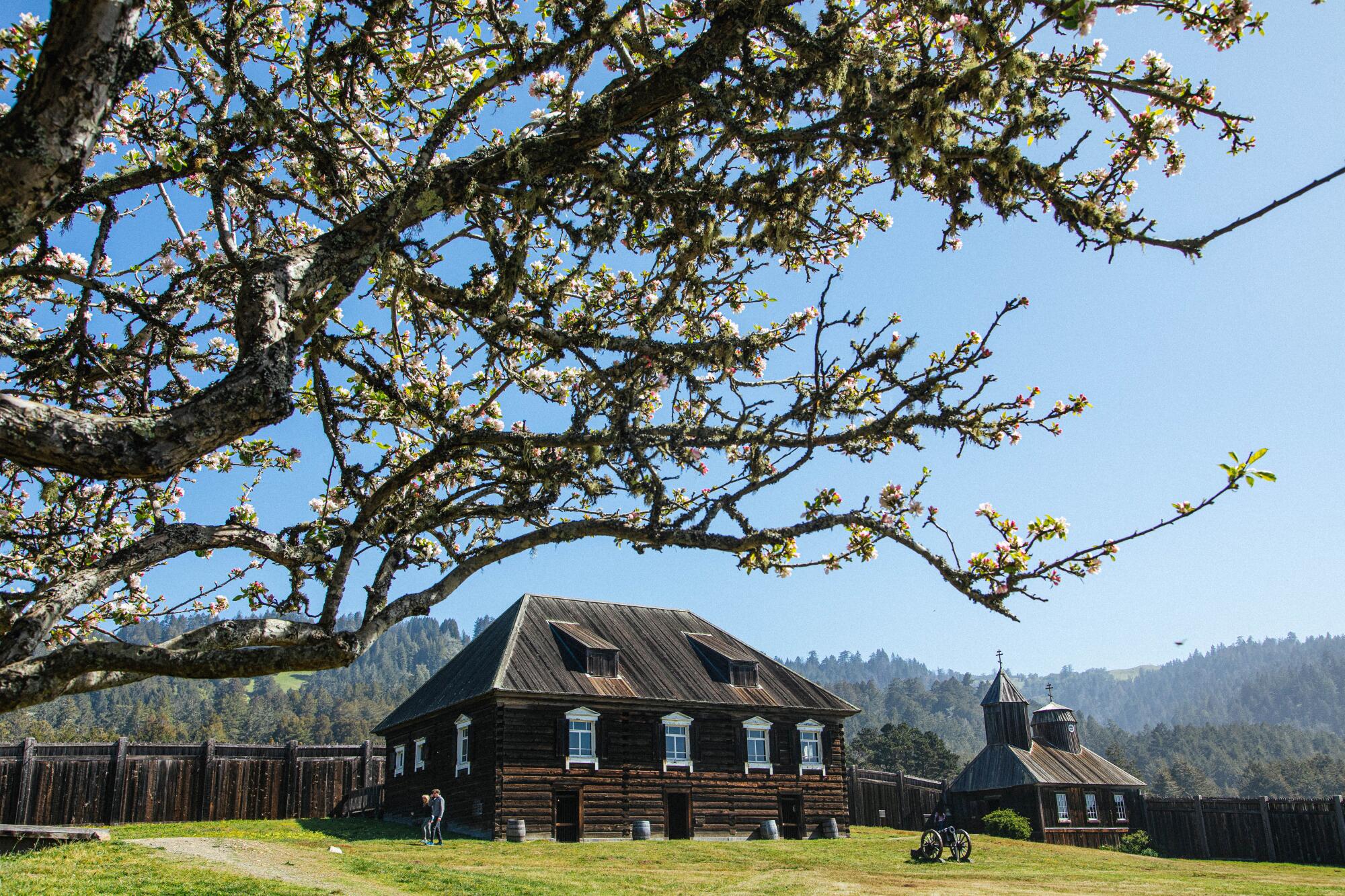
Driving to Sea Ranch from the Bay Area, the route leads from the 101 through Petaluma, one of California’s oldest cities. The drive out to the coast through idyllic farmlands begins the journey away from the freeways and cities and into the Sonoma coast. Stop at Bodega Bay Oyster Co. for a plate of raw or grilled oysters or buy some to take along on the trip. Highway 1 takes you through Bodega Bay into Jenner, with impossibly breathtaking views of the Pacific Ocean. About 18 miles before Sea Ranch, on the left side of the road the Russian fur trading outpost of Fort Ross State Historic Park comes into view, with the village and windmill from the early 1800s.
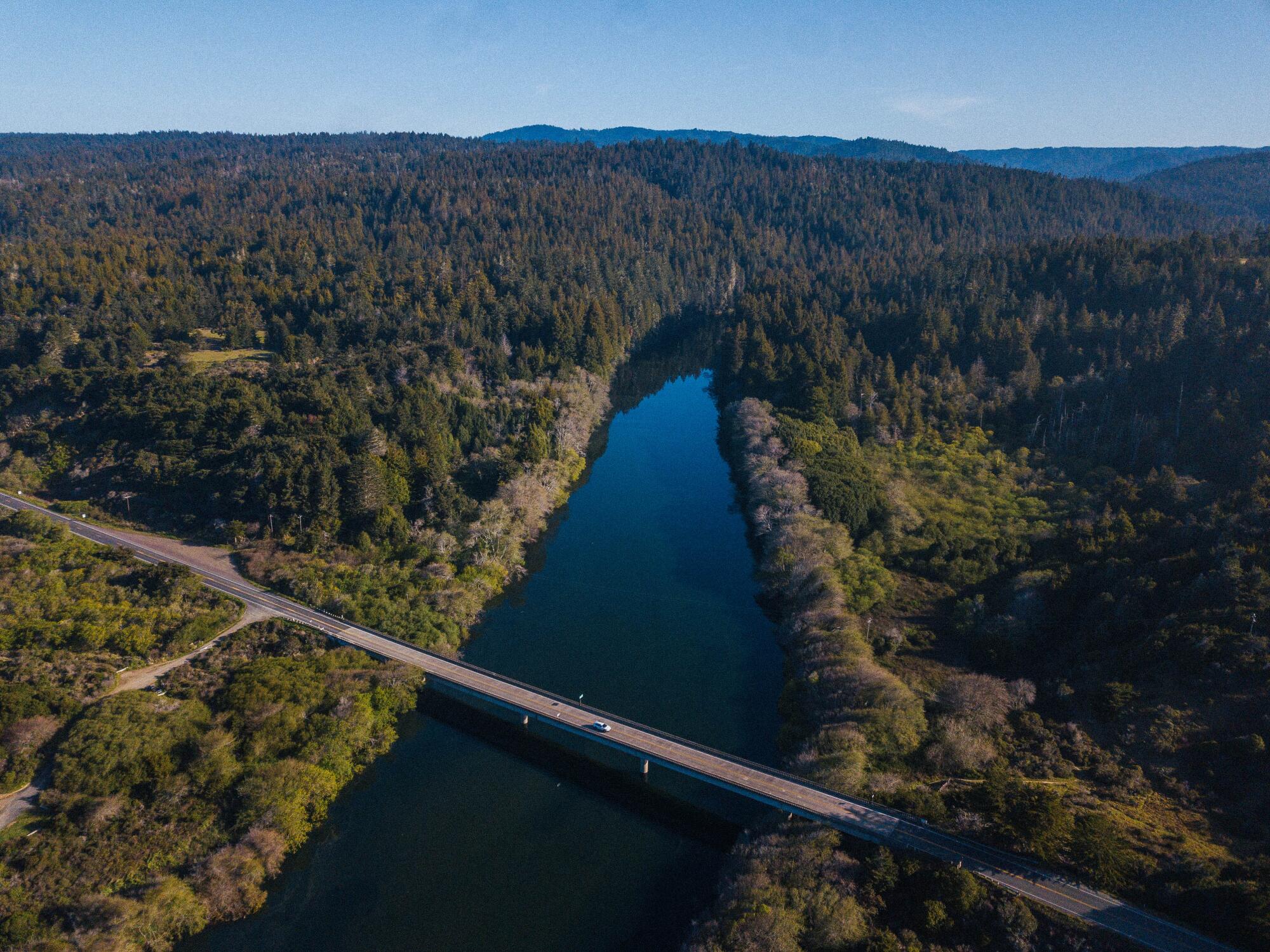
Once in Sea Ranch, you can explore more of the Sonoma Mendocino coast, also known as Mendonoma. Beyond the adjacent town of Gualala, head further north to Point Arena to visit the lighthouse built in 1870 and the Stornetta Public Lands, designated as a National Monument by President Obama in 2014, to walk along the coast for spectacular views and whale watching.
Getting to Sea Ranch
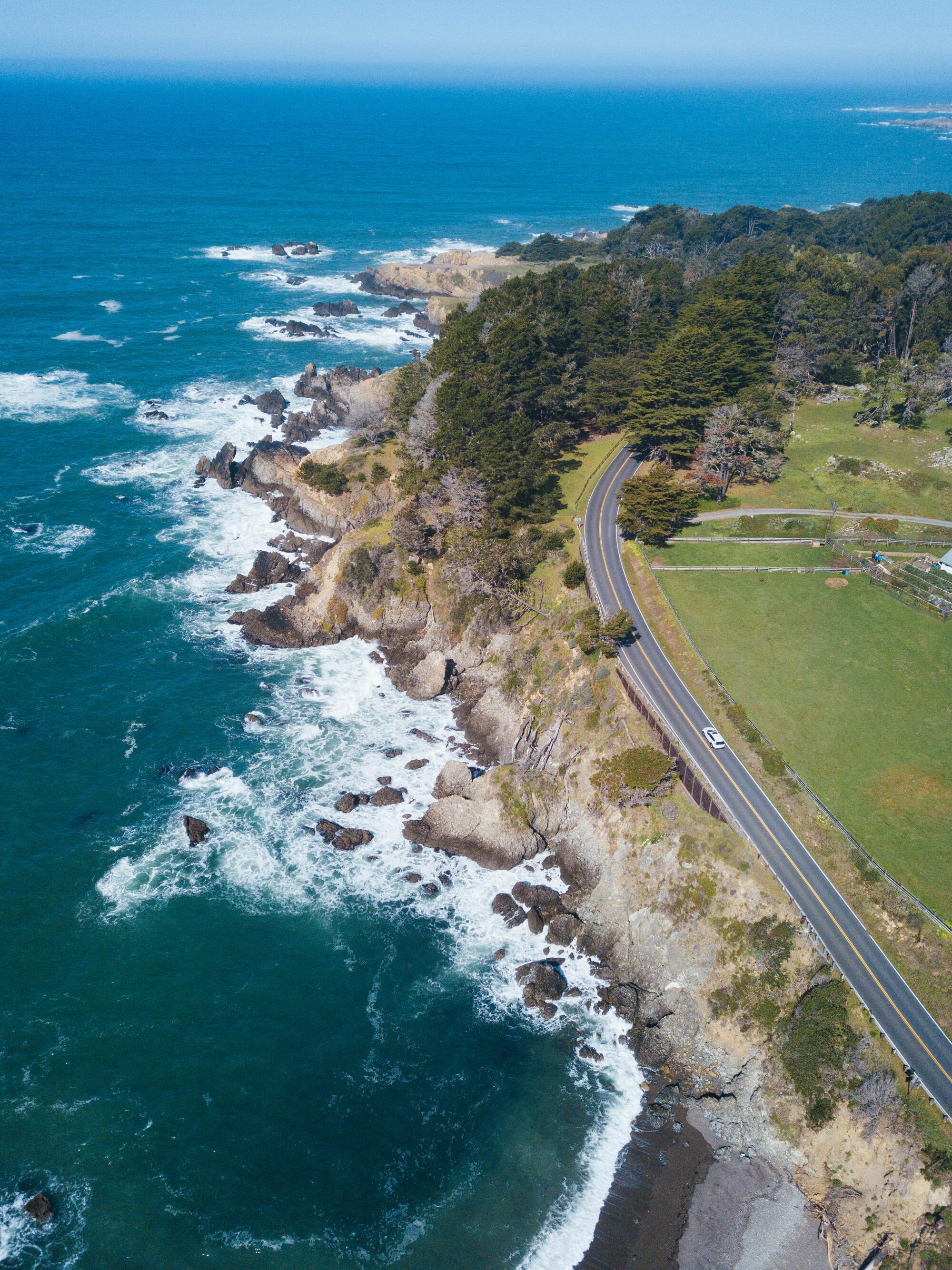
From Southern California, take Highway 5 to the 101 in the Bay Area. You can also fly to San Francisco or Oakland and drive three hours, or to the tiny Sonoma Santa Rosa Snoopy airport and rent a car for a 1 ½-hour drive.
- Share via
Watch L.A. Times Today at 7 p.m. on Spectrum News 1 on Channel 1 or live stream on the Spectrum News App. Palos Verdes Peninsula and Orange County viewers can watch on Cox Systems on channel 99.
More to Read
Sign up for This Evening's Big Stories
Catch up on the day with the 7 biggest L.A. Times stories in your inbox every weekday evening.
You may occasionally receive promotional content from the Los Angeles Times.
